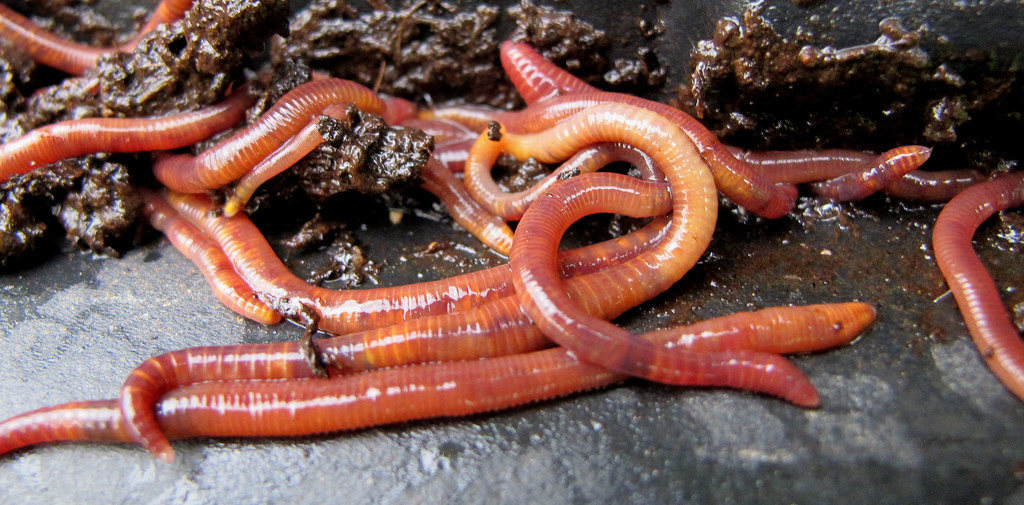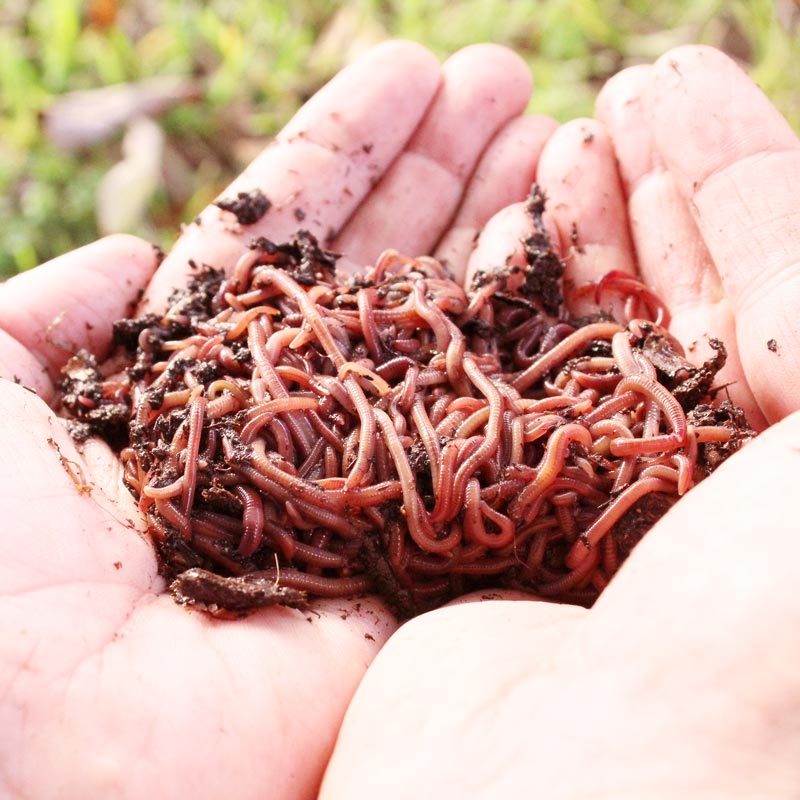Red Wiggler Express: High-Quality Bait for a Successful Fishing Day
Red Wiggler Express: High-Quality Bait for a Successful Fishing Day
Blog Article
Red Wigglers: The Unsung Heroes of Organic Waste Recycling
Red wigglers, or Eisenia fetida, offer as critical agents in the organic waste reusing procedure, changing thrown out products into important vermicompost. As the globe progressively seeks solutions to deal with waste accumulation and improve agricultural productivity, understanding the role of these worms comes to be vital.
What Are Red Wigglers?
The exceptional strength of red wigglers, clinically known as Eisenia fetida, underscores their essential function in natural waste recycling. These tiny, reddish-brown earthworms are usually discovered in breaking down organic issue, such as compost heap and manure heaps. Lake Hickory Bait. Unlike other earthworm species, red wigglers prosper in nutrient-rich environments and are extremely reliable at damaging down natural materials, making them vital for vermicomposting

(Red Wiggler Express)Along with their duty in waste decrease, red wigglers add to soil health by boosting soil framework and oygenation through their tunneling activities (Lake Hickory Bait). Their visibility in composting systems not only enhances disintegration rates however likewise promotes a lasting technique to throw away management, showing their relevance in environmental conservation efforts
Benefits of Composting With Worms
Composting with worms, specifically red wigglers, offers various advantages that enhance both waste administration and soil health and wellness. Initially, these worms efficiently damage down natural waste, transforming it right into nutrient-rich vermicompost that improves dirt. This procedure speeds up decay, permitting a quicker recycling of kitchen area scraps and other organic products contrasted to typical composting approaches.
In addition, the vermicompost created by red wigglers is including advantageous bacteria, which help improve soil structure, aeration, and wetness retention. This boosts the general health and wellness of plants, promoting strenuous development and enhanced returns in yards and agricultural setups. In addition, using worms in composting lessens the production of greenhouse gases, such as methane, adding to an extra sustainable waste management system.

How to Beginning Vermicomposting
Developing a vermicomposting system is an uncomplicated process that can generate substantial benefits for both waste management and dirt enrichment. To start, pick a suitable container, such as a plastic bin or wooden box, with ample ventilation holes to guarantee correct air flow. The measurements ought to ideally be about 2 feet by 3 feet, allowing ample area for the worms to prosper.
Following, prepare bed linens material, which can contain shredded newspaper, cardboard, or coconut coir. This bed linens ought to be moistened to develop an appropriate environment for the worms. As soon as the bed linen is in place, present red wigglers (Eisenia fetida) right into the bin, commonly around one extra pound of worms for each square foot of area.
Adhering to the positioning of worms, add organic waste, such as vegetables and fruit scraps, coffee grounds, and crushed eggshells. Avoid including dairy products, meat, or oils, as these can create odors and bring in bugs. Place the container in a shaded, temperature-controlled area to maintain optimum problems for worm activity. With these actions, you will efficiently launch a vermicomposting system that adds to sustainable waste management and enriches your dirt.
Preserving a Healthy And Balanced Worm Bin
(Red Wiggler Express)Maintaining a worm bin growing needs regular focus and care to make certain the health and wellness of the red wigglers and the efficiency of the composting process. Proper maintenance starts with keeping an eye on the moisture degrees; the bin should perspire yet not soaked. A good regulation of thumb is to maintain an uniformity comparable to a wrung-out sponge.
Oygenation is crucial. Carefully mixing the click to find out more bedding and food scraps every few weeks stops compaction and ensures that all worms have access to oxygen. In addition, it is important to feed the worms properly. A well balanced diet regimen of fruit and vegetable scraps, coffee grounds, and crushed eggshells need to be offered in moderation to prevent overfeeding, which can bring about smells and pests.
If the bin ends up being also warm or cool, the worms might end up being worried. By faithfully taking care of these variables, one can maintain a robust and effective worm container.
Influence on Sustainable Living
The successful upkeep of a worm bin not only benefits the health of red wigglers but additionally adds substantially to sustainable living practices. By reusing organic waste, such as kitchen scraps and backyard particles, red wigglers help draw away considerable amounts of product from garbage dumps. This reduction in waste not just reduces greenhouse gas emissions but additionally reduces the ecological problem associated with waste monitoring.
Additionally, the castings generated by red wigglers act as a nutrient-rich organic plant food, boosting soil wellness and promoting plant development. This natural choice to chemical fertilizers sustains sustainable farming and gardening techniques, lowering reliance on artificial inputs that can hurt communities. In addition, worm composting promotes awareness of waste administration, motivating individuals and areas to adopt even more lasting practices.

Verdict
In summary, red wigglers serve as important contributors to organic waste recycling through their efficient decay of natural products. By incorporating vermicomposting right into waste monitoring approaches, people and communities can considerably decrease waste while promoting ecological sustainability.
Report this page